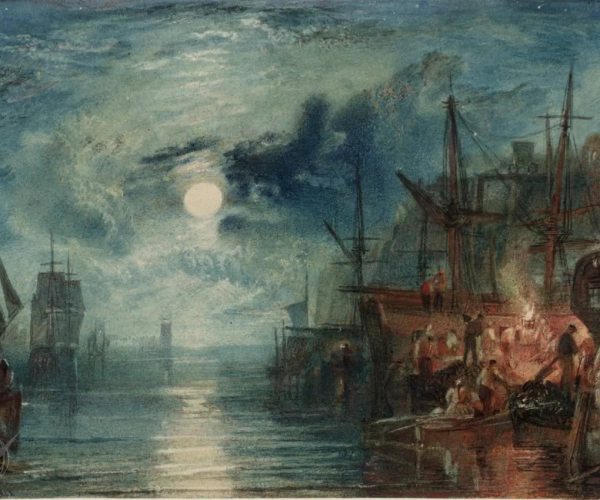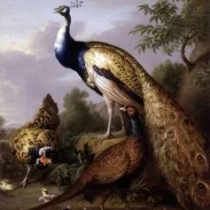Shields, on the River Tyne
Joseph Mallord William Turner's "Shields, on the River Tyne" offers a compelling portrayal of maritime life and industry in the 19th century. The artwork captures the bustling activity along the River Tyne, with ships and boats dotting the expansive waterway against a dramatic sky. Turner's masterful use of light and shadow imbues the scene with a sense of dynamism and grandeur, elevating the mundane subject matter into a profound commentary on human endeavors and the interplay of nature and industry.
At a deeper level, "Shields, on the River Tyne" embodies Turner's preoccupation with the transformative effects of industrialization on the natural world. The artist's subtle yet poignant juxtaposition of the serene river with the imposing presence of industrial structures hints at the complex relationship between progress and environmental impact. Through his deft brushwork and evocative palette, Turner effectively captures the essence of a rapidly changing era, inviting viewers to contemplate the evolving landscape and its implications.
Furthermore, the composition of the artwork, with its striking contrasts and vibrant energy, exemplifies Turner's innovative approach to capturing the essence of a moment. The fluidity of the brushstrokes and the enigmatic play of light and color create a sense of movement and vitality, drawing the viewer into the scene and conveying a profound sense of awe and wonder at the spectacle of human endeavor set against the backdrop of nature.
In conclusion, "Shields, on the River Tyne" stands as a testament to Turner's ability to infuse everyday subject matter with deep layers of meaning and emotional resonance. Through his exceptional artistic skills and keen perceptiveness, Turner invites us to reflect on the complexities of progress, the coexistence of industry and nature, and the enduring allure of the maritime world. This artwork continues to captivate and inspire, serving as a timeless reminder of the artist's enduring legacy and his profound insights into the human experience.







No Comments Yet...